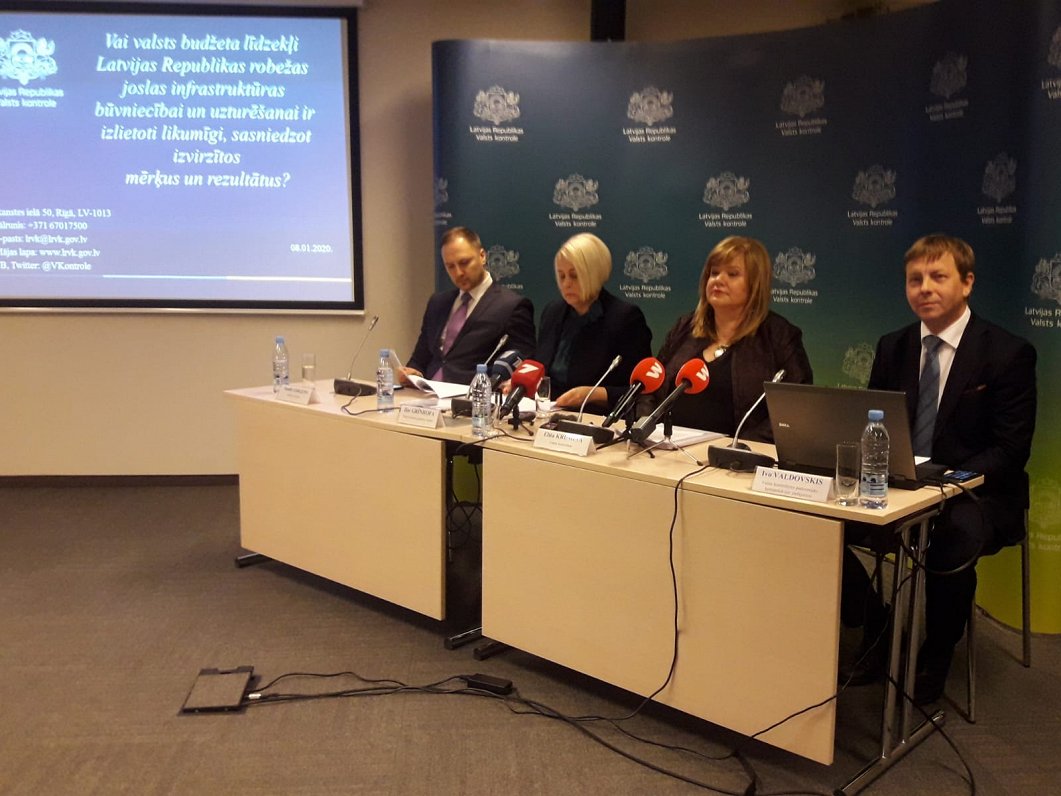Krūmiņa said that the law clearly states the width of the border area as 12 meters. Because this distance has been exceeded in several areas, the construction costs also exceeded the budget. As a result the construction was not completed on time.
The Law on Forests was also violated by cutting down large areas of forest and causing damage to protected objects. It’s not known what happened to the trees that were cut down.
Krūmiņa described the State Border Guard actions as “unprecedented impunity and arbitrariness, as if the laws don’t apply.”
State Audit Board Member Ilze Grīnhofa said that in addition the Public Procurement Law was also violated due to the changes in work volume and finances.
In Krūmiņa’s opinion these violations point to a scheme where the state tender competition was awarded to a pre-selected representative, after which the project participants did as they please. An additional million euros have also been illegally spent on maintenance of the Latvian borders areas with Lithuania and Estonia.
As previously reported, the number of violations on Latvia's eastern border decreased from 202 in the first five months of 2018 to just seven by the end of May in 2019. This is after security was tightened with the construction of a border strip and, crucially, a fence on what's part of the EU's eastern flank.
A number of investments are took place, with €21m spent on infrastructure on the border with Russia and a further €28m on the border with Belarus. An additional €15m is to be spent on modernizing existing border crossings and creating a border strip.
The border between Latvia and Russia is 284 km and by early 2019 a 207-km border strip has been created along with a 93-km fence. The Pasiene Border Guard chief Sandris Buliga said that in 2019 no violations were recorded in his turf after a 21-km uninterrupted fence was erected from the direction of the Terehov border crossing.
The Border Guard likewise said they want to erect a further 100 km of fencing on the border with Russia. If the Interior Ministry supports this initiative, funding of a further €5m will be needed.




























